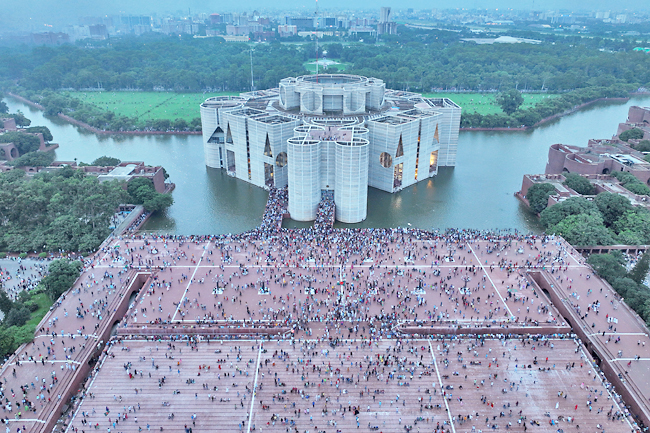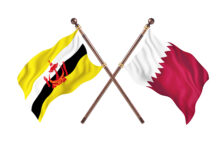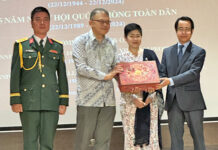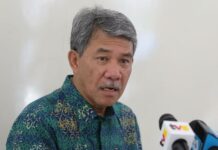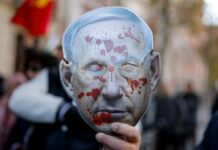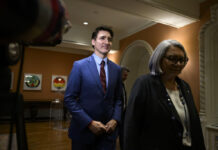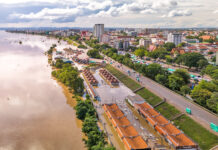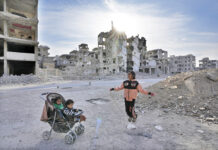AP – Bangladesh’s president dissolved Parliament yesterday, clearing the way for new elections to replace the longtime prime minister who resigned and fled the country following weeks of demonstrations against her rule that descended into violent unrest.
Bangladeshi President Mohammed Shahabuddin also ordered opposition leader Khaleda Zia released from house arrest. Zia, a longtime rival of ousted Prime Minister Sheikh Hasina, was convicted on corruption charges by Hasina’s government in 2018. The streets of Dhaka appeared calmer yesterday, with no reports of new violence as jubilant protesters thronged the ousted leader’s residence. Some posed for selfies with soldiers guarding the building where a day earlier angry protesters had looted furniture, paintings, flower pots and chickens.
As the country waited for a new government to emerge, a key student leader said protesters wanted Nobel Peace Prize laureate Muhammad Yunus to head an interim government. Yunus, who is currently in Paris for the Olympics, called Hasina’s resignation the country’s “second liberation day”.
He could not immediately be reached for comment, but student leader Nahid Islam said Yunus had agreed.
Bangladesh’s figurehead president and its top military commander said late on Monday that an interim government would be formed soon to preside over new elections.
Hasina fled to India by helicopter on Monday as protesters defied military curfew orders to march on the capital, with thousands of demonstrators eventually storming her official residence and other buildings associated with her party and family.
Protests against a quota system for government jobs that critics said favoured people with connections to her party grew into broader challenge to her 15-year rule in recent weeks.
A crackdown on the demonstrations led to clashes that left scores dead – and only fuelled the movement.
Military chief General Waker-uz-Zamam said he was taking temporary control of the country after Hasina resigned, and he and the country’s figurehead president promised an interim government would be formed soon to preside over new elections.
The military wields significant political influence in Bangladesh, which has faced more than 20 coups or coup attempts since independence in 1971.
